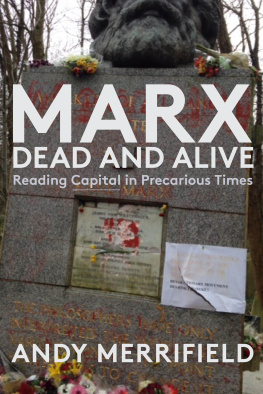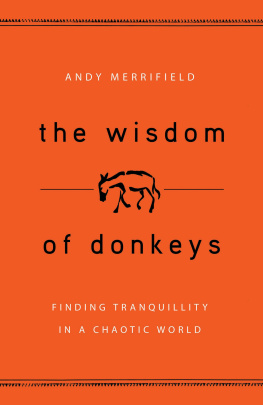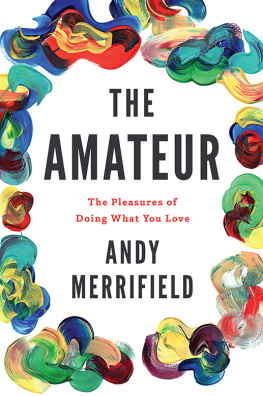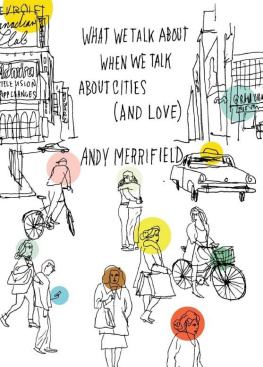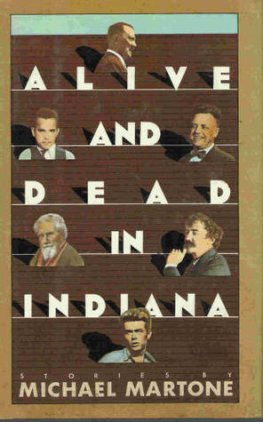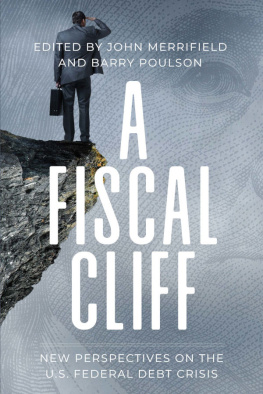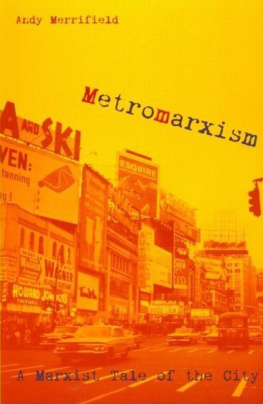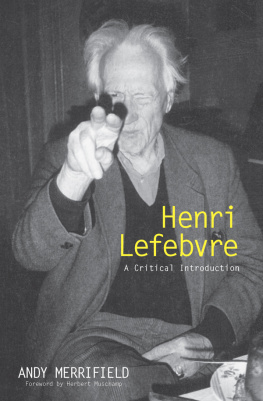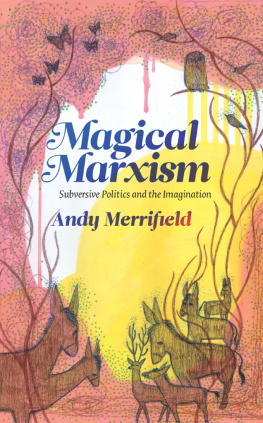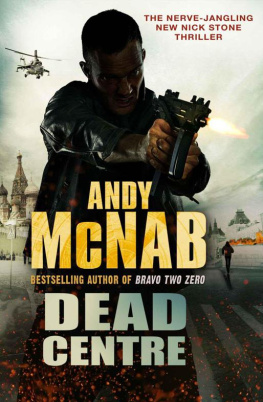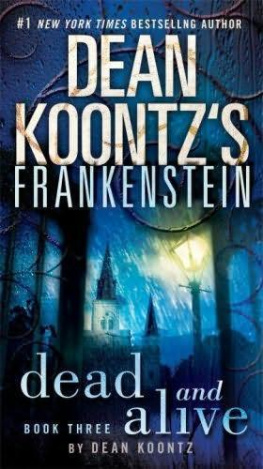Andy Merrifield - Marx, Dead and Alive
Here you can read online Andy Merrifield - Marx, Dead and Alive full text of the book (entire story) in english for free. Download pdf and epub, get meaning, cover and reviews about this ebook. year: 2020, publisher: Monthly Review Press, genre: Detective and thriller. Description of the work, (preface) as well as reviews are available. Best literature library LitArk.com created for fans of good reading and offers a wide selection of genres:
Romance novel
Science fiction
Adventure
Detective
Science
History
Home and family
Prose
Art
Politics
Computer
Non-fiction
Religion
Business
Children
Humor
Choose a favorite category and find really read worthwhile books. Enjoy immersion in the world of imagination, feel the emotions of the characters or learn something new for yourself, make an fascinating discovery.
- Book:Marx, Dead and Alive
- Author:
- Publisher:Monthly Review Press
- Genre:
- Year:2020
- Rating:3 / 5
- Favourites:Add to favourites
- Your mark:
- 60
- 1
- 2
- 3
- 4
- 5
Marx, Dead and Alive: summary, description and annotation
We offer to read an annotation, description, summary or preface (depends on what the author of the book "Marx, Dead and Alive" wrote himself). If you haven't found the necessary information about the book — write in the comments, we will try to find it.
Marx, Dead and Alive — read online for free the complete book (whole text) full work
Below is the text of the book, divided by pages. System saving the place of the last page read, allows you to conveniently read the book "Marx, Dead and Alive" online for free, without having to search again every time where you left off. Put a bookmark, and you can go to the page where you finished reading at any time.
Font size:
Interval:
Bookmark:


LILI-ROSE MERRIFIELD
ANDY MERRIFIELD is an independent scholar and author of a dozen books, as well as numerous articles, essays and reviews appearing in Monthly Review, The Nation, Harpers Magazine, New Left Review, The Guardian, Literary Hub, Jacobin, and Dissent. He is a prolific writer about urbanism, political theory, and literature. His books include Dialectical Urbanism (Monthly Review Press), The New Urban Question, and Magical Marxism. He has also published three intellectual biographies, of Henri Lefebvre, Guy Debord, and John Berger, a popular existential travelogue, The Wisdom of Donkeys, a manifesto for liberated living, The Amateur, together with a memoir about cities and love, inspired by Raymond Carvers short stories, called What We Talk About When We Talk About Cities (and Love).
MARX
DEAD AND ALIVE
Reading Capital in Precarious Times
ANDY MERRIFIELD

Copyright 2020 by Andy Merrifield
All Rights Reserved
Library of Congress Cataloging-in-Publication Data:
Merrifield, Andy, author.
Marx, dead and alive : reading Capital in precarious times / Andy Merrifield.
Identifiers: LCCN 2020031943 | ISBN 9781583678794 (paperback) | ISBN 9781583678800 (cloth) | ISBN 9781583678817 (ebook) | ISBN 9781583678824 (ebook other)
Subjects: LCSH: Marx, Karl, 1818-1883. | Marx, Karl, 1818-1883. Kapital. | Capitalism. | Socialism.
Classification: LCC HX39.5 .M457 2020 | DDC 335.4--dc23
LC record available at https://lccn.loc.gov/2020031943
Typeset in Bulmer
MONTHLY REVIEW PRESS, NEW YORK
monthlyreview.org
5 4 3 2 1
Marx, Dead and Alive
At a quarter to three in the afternoon, March 14, 1883, Karl Marx passed away peacefully in his favorite armchair. Three days later, a few miles up the road, he was buried, a citizenless migr, in Londons Highgate Cemetery. At the graveside, eleven mourners paid homage to Old Moor, and listened to Marxs longtime comrade and benefactor, Frederick Engels, The General, remember his dear departed friend: An immeasurable loss has been sustained both by the militant proletariat of Europe and America, and by historical science, in the death of this man. The gap that has been left by the departure of this mighty spirit will soon enough make itself felt. His name, Engels predicted, will endure through the ages, and so also will his thought.
One hundred and thirty-six years on, Highgate Cemetery continues to receive a steady stream of Marx well-wishers, of all ages and nationalities, the curious and the converted. Fresh flowers and moving inscriptions, in almost every language under the sun, regularly adorn the great revolutionarys gravestone. Towering overhead, seemingly indomitable, is the man himself, or rather a gigantic bust of him, with its menacing eyes staring out into the distance, perhaps frowning at his conservative rival Herbert Spencer, whose remains lie opposite across the path.
Over the years, the cemetery has attracted its fair share of naysayers as well, people who have it in for Marx and all he stands for. Reactionaries have taken hammers and chisels to his monument, daubed graffiti over it, and, in a 1970 National Front attack, tried to blow it up with a pipe bomb. But the graves designsolid bronze bust with a Cornish granite plinthhas so far resisted everything thrown at it. I say so far because just this past week, as I writelate February 2019perhaps the nastiest attack to date has been perpetrated; the Grade I-listed monument might never be the same again. The nastiest attack in the nastiest of times, and that, alas, is no coincidence.
In early February, vandals took a blunt instrument to Marxs headstone. But they hadnt reckoned on its thickness. So they returned later that same night, with what seems like a lump hammer, taking further swipes. This time they shattered pieces from the tablet, those bearing the letters of Marxs name, as well as members of his family, including his four-year-old grandson, Harry Longuet. And then, several weeks on, the tomb was ransacked a second time, splattered with lurid red paint, saying: Doctrine of Hate and Architect of Genocide. Ian Dungavell, Chief Executive of Friends of Highgate Cemetery Trust, a man responsible for the cemeterys 53,000 graves, was shocked by both assaults, condemning them as a particularly inarticulate form of political comment.
My heart sank when I heard the news. Perhaps because I knew that, these days, inarticulacy is very much the form of our political commentary. Maybe, too, because over past decades Ive tried to articulate my own vision of Marx and Marxism. Marxs thought has never been rigid dogma or some sterile formula for me. Instead, its a rich source of ideas, a vibrant critical (and self-critical) culture capable of innumerable spin-offs and reinterpretations, imaginative adaptations, and provocations. Marxs vision is about human liberation, not collective enslavement. Why would any tyrant ever imagine a society in which the free development of each is the condition for the free development of all?
Marxs thought has survived for more than a century and a half because of this fluidity and dynamism. Marxism has given people plenty to work with and think about when the world itself has been less inspiring. A while back, the late Eduardo Galeano advocated a Marxism that celebrates continuous birth. He had one of his rummy characters call it Magical Marxism: one half reason, one half passion, and a third half mystery. Not a bad idea! his drinking buddies agree, toasting this new school of Marxism, which has always seemed like a good idea to me, too, even if Id fill that third half with hope.
I say all this without being smitten by Marxs Highgate bustby an immense, iconic image of the man, and of Marxism, a Marxism of big statues and flag-waving, of a holy orthodoxy far removed from the messy profane world of real mortals. Marx himself, of course, occupied this messy profane world. In real life, he was an intricate and vulnerable figure, a feisty yet frail patriarch, a poor, peripatetic vagabond who spent more than thirty years traipsing from one crummy London apartment to another, his whole family often living in just two cluttered rooms, avoiding debts, pawning what little he had (including his own overcoat), shrugging off illness, watching four children predecease him.
Marxs personal pains far exceeded his political woes. Never had anyone, he once said of himself, written about capital in general amid a total lack of capital in particular. Marxs own ironic Marxism often seemed more akin to a Groucho Marxism, avoiding any club that would have him as a member: I, at least, am not a Marxist, he is once reputed to have a told a French socialist, after seeing his thought bastardized. More often than not Marx resembled a disheveled character from Dostoevsky or Gogol, having his overcoat ripped off his back, feeling the chill breeze of the economy and the climate pierce his threadbare clothing. The Communist Manifesto is full of such imagery.
Marxs clumsy outsiderness, his foreignness, his broken English, could have easily earned him a lead role in a Samuel Beckett performance. Marx knew the dingy bedsit tenancies populated by the likes of Murphy, or the anonymous evictee of The Expelled, flung out onto the rooming-houses steps, hearing the door slam behind him. Marxs alter-egos were more Watt than Stalin, more Molloy than Mao. His Vladimir was a Didi not an Ilyich. He was the intellectual champion of the underdog principally because he was one. He learned about the brutality of capitalism from political activism and mammoth reading sessions in the British Museum; yet his knowledge of working-class domestic oppression came firsthand, was lived out. A prophet of genocide? Give me a break.
Next pageFont size:
Interval:
Bookmark:
Similar books «Marx, Dead and Alive»
Look at similar books to Marx, Dead and Alive. We have selected literature similar in name and meaning in the hope of providing readers with more options to find new, interesting, not yet read works.
Discussion, reviews of the book Marx, Dead and Alive and just readers' own opinions. Leave your comments, write what you think about the work, its meaning or the main characters. Specify what exactly you liked and what you didn't like, and why you think so.

